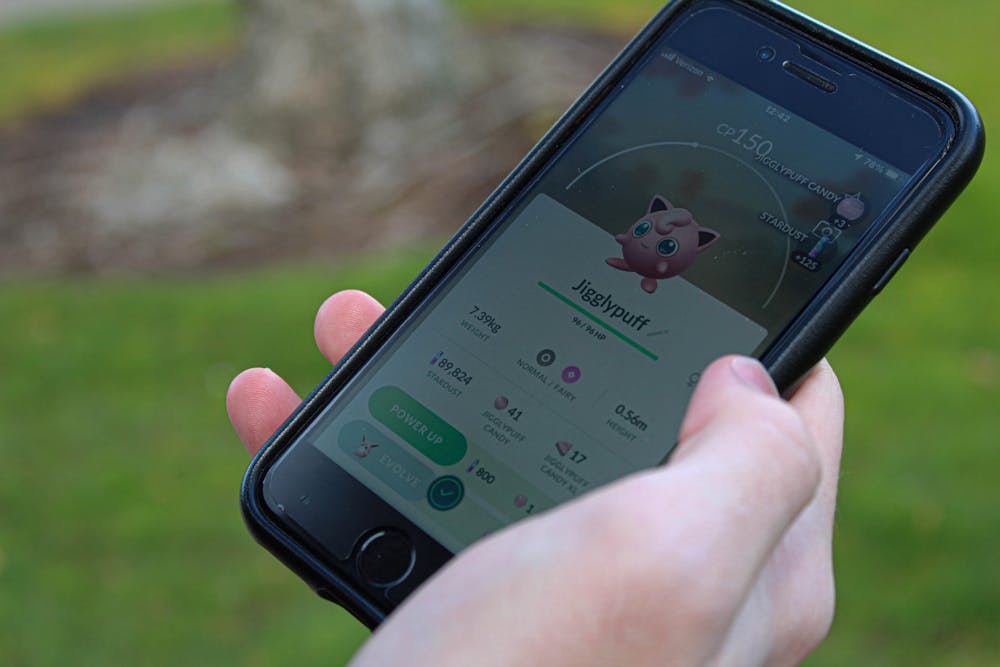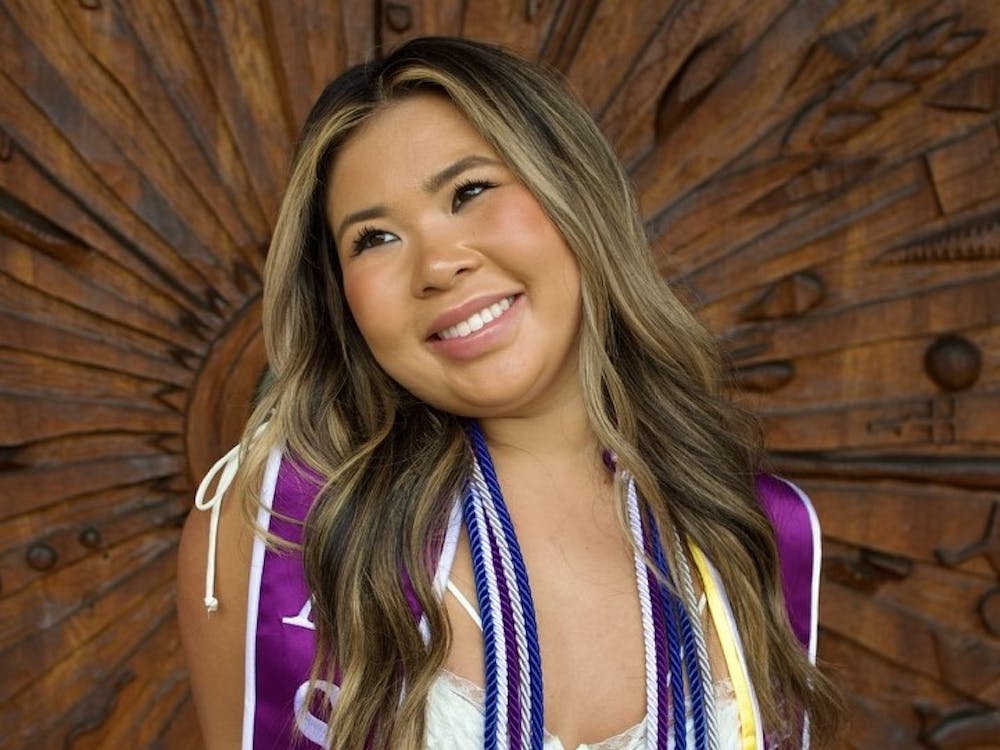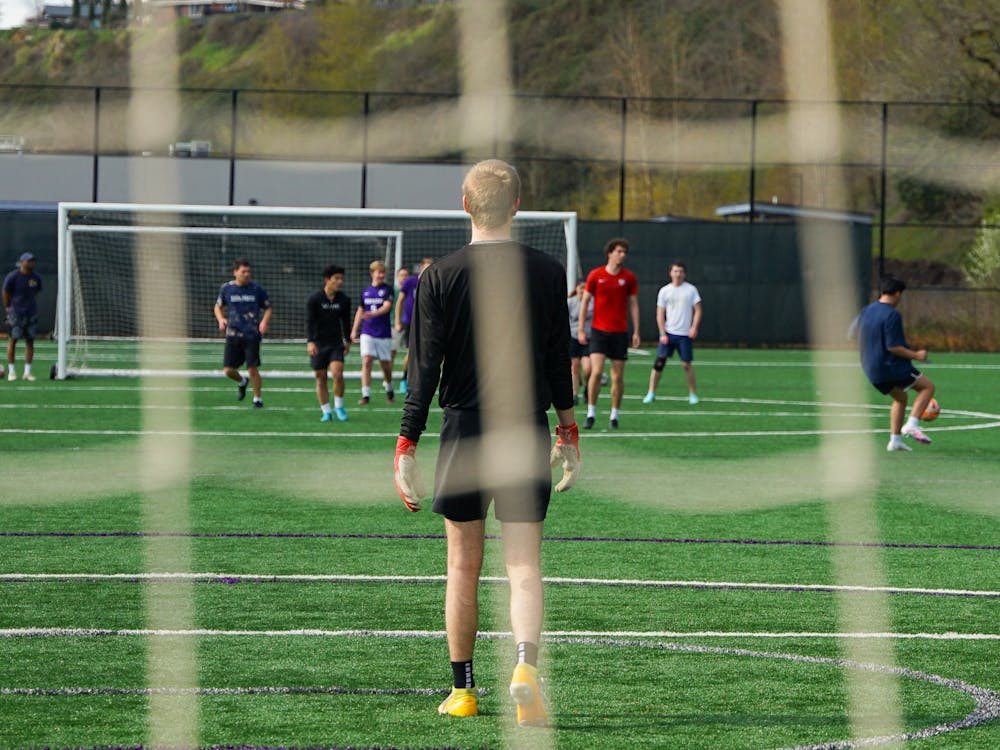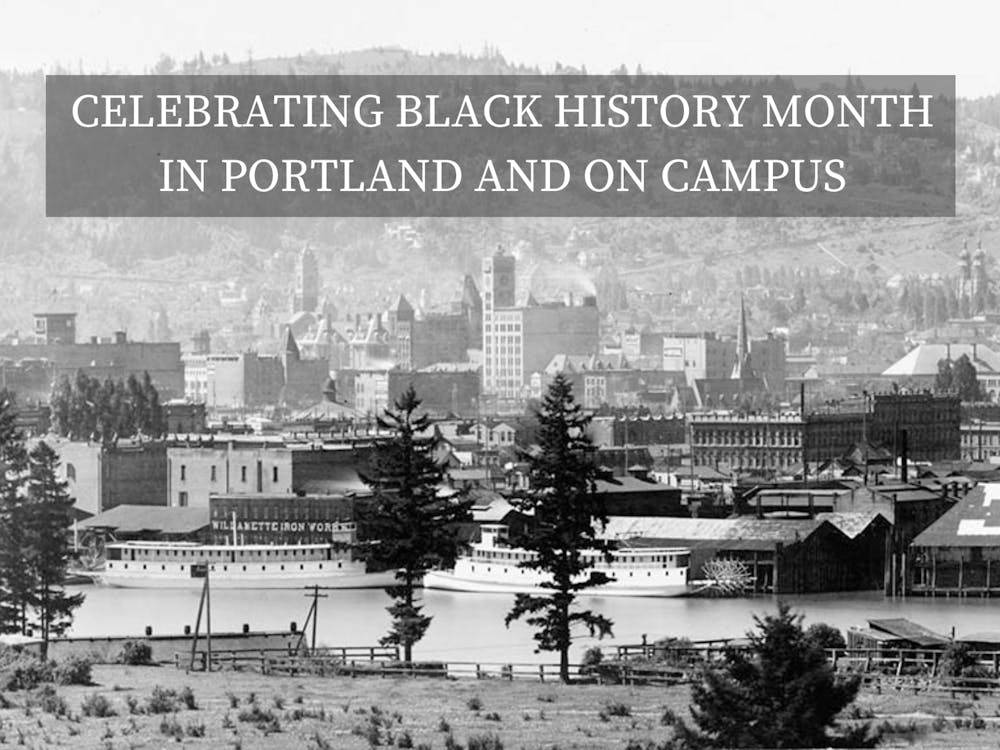In July 2016, the world became obsessed with Pokémon GO. People worldwide were scrambling to odd corners to catch their favorite monster on their mobile phone — some going as far as trespassing onto private property or risking their lives. Then-presidential candidate Hillary Clinton even infamously said “Pokémon GO to the polls” during a campaign rally.
For a brief moment in time, it seemed like the mobile app had completely consumed the hearts and minds of the entire world.

Even though Pokémon GO moved past its 2016 peak, there is still an active player base. Today, Pokémon GO boasts nearly 80 million active monthly players and earned over $700 million in revenue in 2022.
Opening the Pokémon GO app while on campus is enough to show you how active the player base is at UP. The gyms at Chiles, Merlo Field and Shipstead Hall frequently alternate between red, yellow and blue — the colors of the three teams that Pokémon GO players join when they start the game. Lures are constantly set up to attract Pokémon to Pokéstops all over campus.
For senior Luca Pladson, Pokémon GO has remained a constant interest since the game’s launch. While he played the game infrequently during its early years, UP’s active scene got him to play the game daily.
“I grew up on Pokémon — the cartoon and the games,” Pladson said. “Living on campus is pretty cool because every dorm or academic building is a Pokéstop or a gym.”
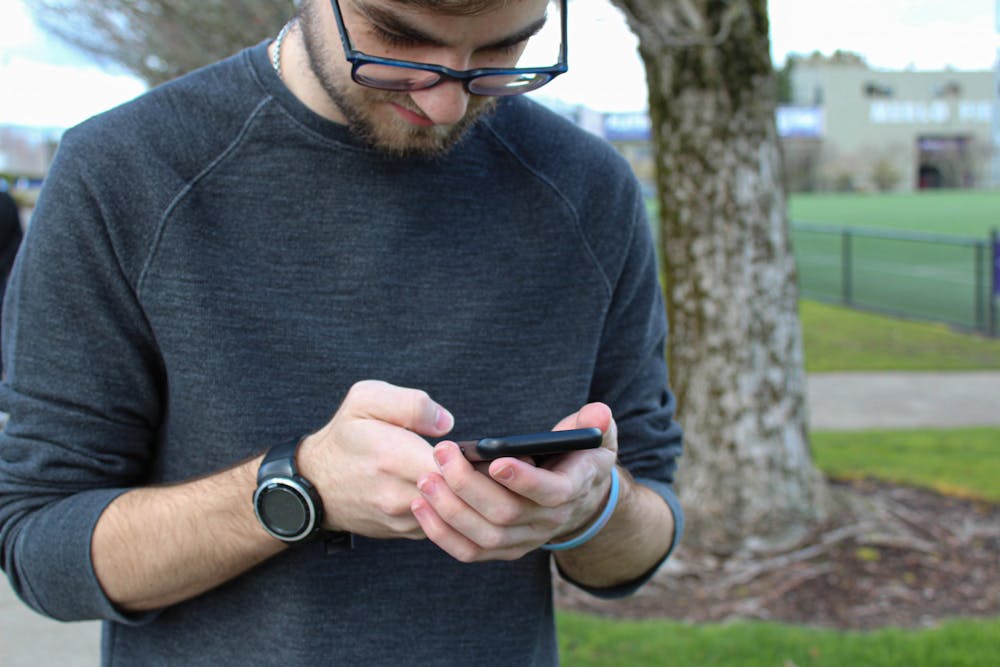
Junior Ben Yarrish, who has been playing Pokémon games since his childhood, similarly plays Pokémon GO because of the wide range of Pokéstops, Pokémon and friends to play with on campus.
“I like the fact that I can play with friends here,” Yarrish said. “When I go home I don’t really play because none of my friends play and there’s nothing around my house.”
Yarrish’s experience playing Pokémon GO with friends reflects the core of one of the app’s main functions — building real-world communities of players achieving common interests and goals.
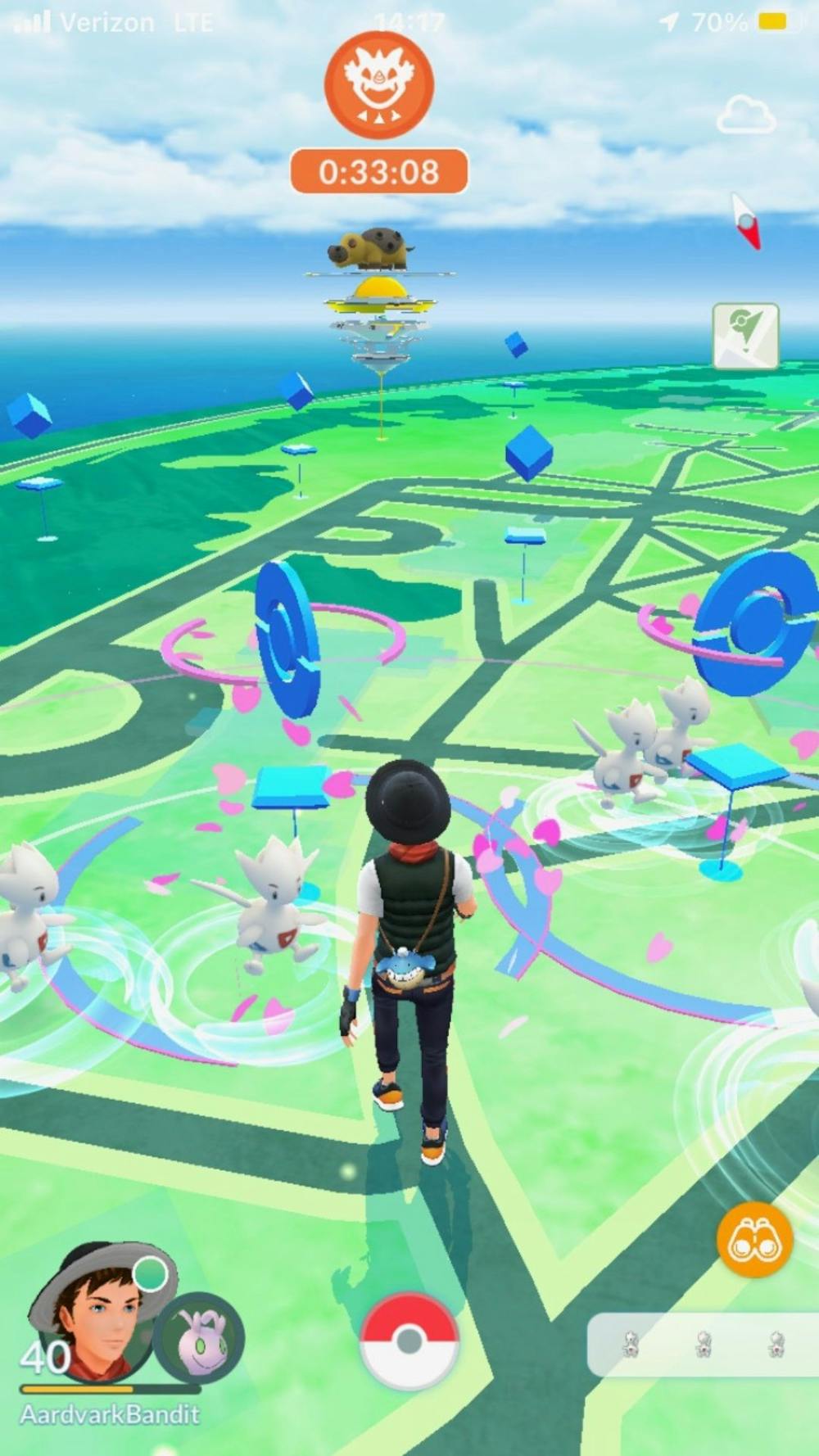
Besides providing ample Pokéstops and gyms to players, many features in the app itself help foster a community in the real world. Besides adding other players as friends and sending gifts to each other daily, players are encouraged to participate in real-world events hosted by the app’s developers.
One key feature of Pokémon GO is the appropriately named “Community Days” — monthly events in which a single Pokémon will spawn at high rates and give players higher chances to encounter shiny versions of that Pokémon. During Community Days, players are encouraged to visit public spaces and connect with each other while enjoying the boosts and benefits provided in-game.
On any given Community Day or ‘Raid event,’ UP students can be seen coming together to catch and defeat Pokémon as groups.
“The last event, my friends and I would be walking around doing raids and I would see another group of kids by Merlo and Chiles,” Yarrish said. “So then we’d get groups of 15 people playing Pokémon GO. The raids got pretty easy at that point.”
Raids and community days have also helped students create impromptu groups dedicated to organizing participants and friends during Pokémon Go events.
Junior Sebastian Anderson and his friends have used social media to connect with other players and participate in raids on campus.
“We have a big Snapchat group chat that has some of my friends and people that we’ve met playing Pokémon GO,” Anderson said. “We try to meet up and try to take down a Pokémon if we have enough people.”

Junior Sebastian Anderson looks at a gym on campus.
As successful as Pokémon GO has been in building revenue and community, the game has its fair bit of criticisms that divides its fanbase. Players like Yarrish wish that the game would incorporate more strategy in its battle system, akin to the battling in the main series Pokémon games.
“I think ‘real’ Pokémon games are more fun,” Yarrish said. “In Pokémon GO, the battles are just tapping your screen really fast. There’s very little thinking and could just keep you occupied if you need something to do.”
Niantic, Pokémon GO’s developer, has also made drastic changes to the remote raids system that were added during the COVID pandemic. Such changes have left players from vulnerable groups at a heavy disadvantage.
During the pandemic, remote raids allowed players to participate in raids from the safety of their own home. After the pandemic, many players — especially players who are disabled or those from rural areas with fewer Pokéstops and gyms — have expressed how remote raids made the game much more accessible to physically and economically vulnerable players.
The changes made to Pokémon GO have been met with heavy criticism — with players calling out the accessibility issues brought about by the limitations to remote raids.
“You can buy passes with coins, which to earn you must buy with real money or leave a Pokémon at a gym,” Pladson said. “If you can’t access a gym to get coins, you can’t buy a remote pass to go to a gym that you can’t access — it’s a whole circle.”
Regardless of the changes that divide Pokémon GO’s fanbase, the game remains a constant presence in the hearts and minds of dedicated players. Fans can only hope that the game’s active base can continue building up dedicated and tight-knit communities both locally and worldwide.
“When they created this fully interactive game where people had people going out of their houses to catch Pokémon together, it really brought a lot of people together,” Pladson said. “I think that’s a really special thing — even if it is a nerdy concept.”
Carlos Moreno-Vega is a reporter for The Beacon. He can be reached at morenove23@up.edu.



